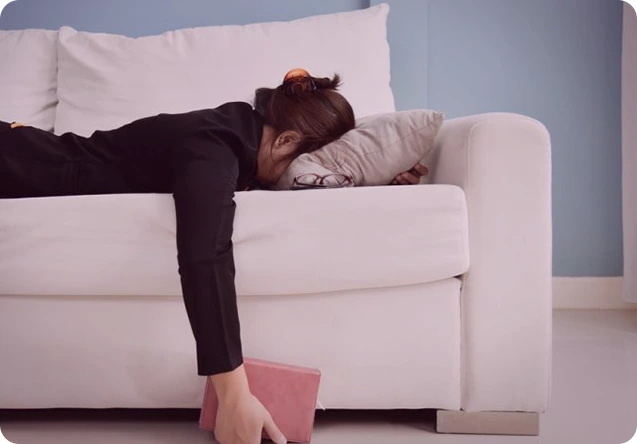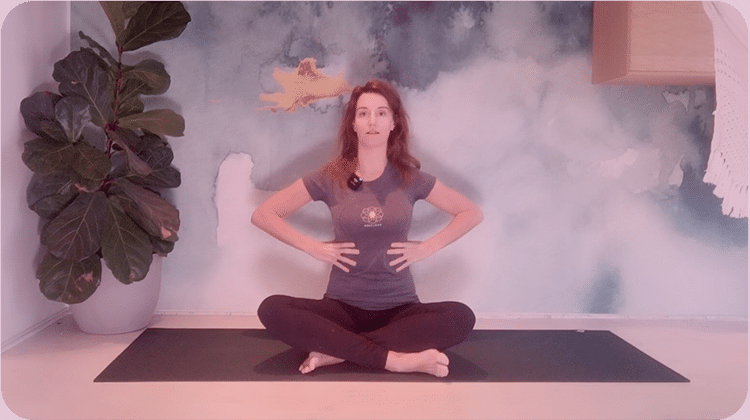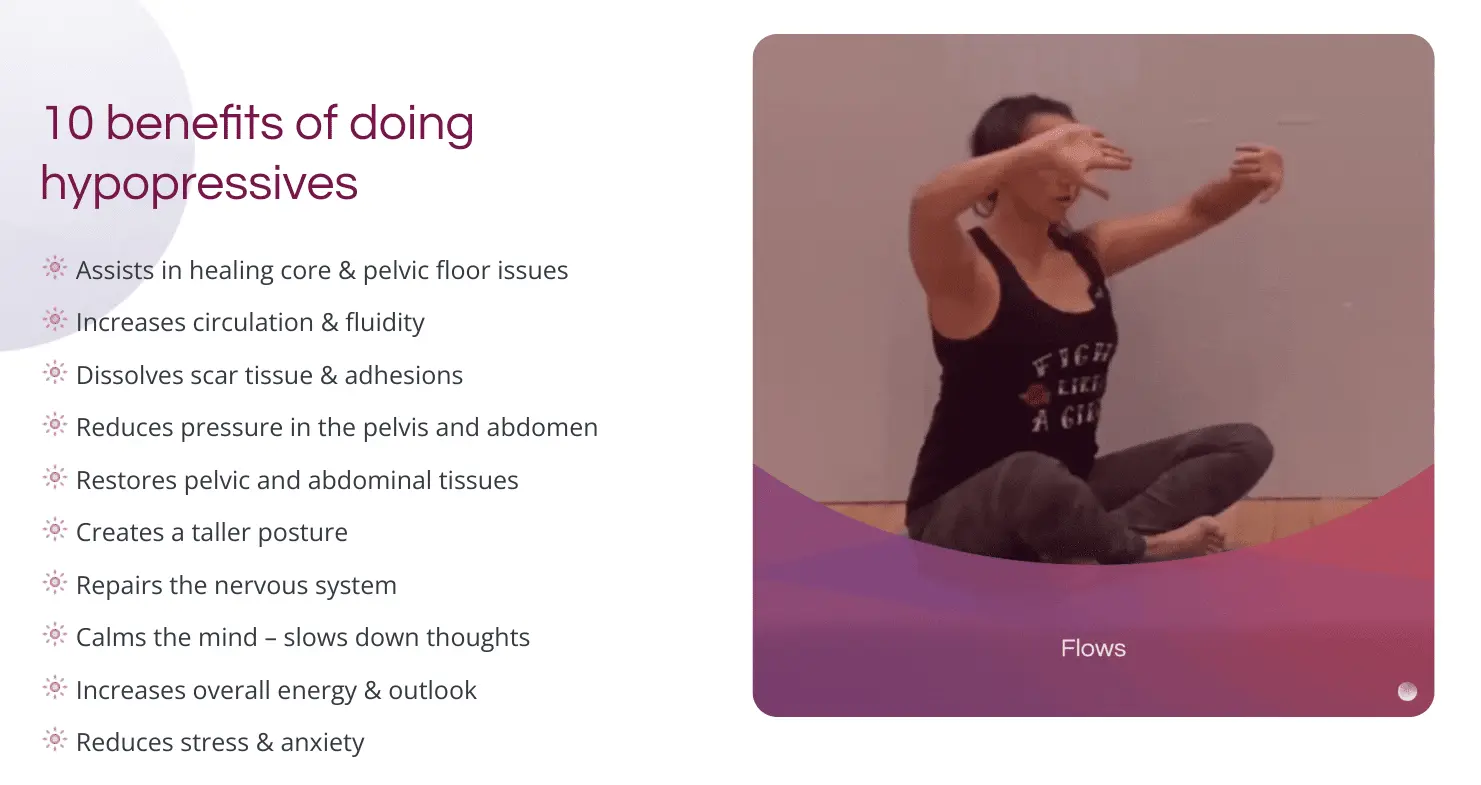Hormonal Fatigue: Feeling Tired During Ovulation? This is Why
- June 6, 2022
- Hormonal Health

Tired during ovulation? Here’s why.
We all have days where we feel extra tired and worn out. Whether it’s from our job, our familial responsibilities, or from pushing ourselves too much.
But this type of fatigue we’re talking about makes you question:
Was it too much coffee?
Did I forget to take my vitamins?
Am I sick?
Then you think — does this fatigue have something to do with my menstrual cycle? Maybe I’m feeling this way because I’m ovulating? It’s common to mistake ovulation with period fatigue, but it’s actually caused by something else.
In this article, we’ll go over the phases of your menstrual cycle and help you understand why and when these symptoms occur so you can deal with it like a pro!
Let’s start off with one of your first questions…
There are 5 possible causes of fatigue related to your menstrual cycle and they are: hormonal changes, lack of serotonin, sleep issues, low iron, and eating too much food.
Let’s review these, one by one:
1. Hormonal changes
Throughout your menstrual cycle, your hormone levels fluctuate which causes most PMS symptoms including fatigue. It’s not all bad news, though. These hormones are crucial for childbearing and helpful in developing your bones too! However, these changes also affect another hormone called serotonin.
2. Lack of serotonin
Along with dopamine, oxytocin, and endorphins, serotonin is one of your body’s happy hormones. It’s a chemical messenger that helps balance not just your mood, but also your digestion, appetite, and sleep. Low serotonin before your period may cause fatigue, anxiety / depression, and trouble sleeping.
3. Sleep issues
When you have PMS — bloating, cramps, headaches, and even the rise of your body’s temperature can keep you awake at night. So, during this time, your body needs extra care. Otherwise, you may feel extreme tiredness both from PMS and lack of sleep, which could also cause iron deficiency.
4. Low iron
Does your period last for more than 7 days? Do you need to change your pad or tampon every 2 hours? Or is it common for you to pass clots that are larger than a size of a quarter? This is heavy bleeding, which might make you more prone to anemia or iron deficiency. Low iron can cause fatigue and be the reason you said “yes” to these questions, but eating food that’s rich in iron can help increase your iron levels.
5. Eating too much food
You don’t have to feel guilty for craving carbs and sweets before your period. It’s normal! In fact, this is your body’s way of spiking up your serotonin levels to make you feel better when all else feels whacked. But too much of anything comes with a price. In this case, excessive food can make you sleepy on any given day.
And when you add hormonal imbalances on top of that, major fatigue can set in.
But not to worry, there is something we can do about it, and it begins with…
Understanding your menstrual cycle

By tracking your period, you’ll be able to plan for the changes that occur during the month.
Also, understanding your cycle can actually give you hints about your overall health and well-being. Having irregular periods, for example, may indicate underlying health issues that should be addressed.
In the meantime, let’s get back to Menstruation Cycle 101.
There are 3 phases that happen throughout your period:
follicular, ovulation, and luteal.
1. The Follicular Phase (First Half of Cycle: Day 1 – 14)
This is the phase before the egg is released.
It’s the start of a “new” cycle when the follicle (where the egg is) develops, the same time your period begins. In this phase hormones will start to rise.
It’s time to get busy!
As your estrogen gradually increases, you’ll become more and more energetic. These are your best days to exercise, socialize, solve complex tasks, and generally get things done!
2. The Ovulation Phase (Mid-Cycle: Day 14)
This is the phase when the egg is released.
It will only last for 12 – 24 hours but the high level of hormones can last up to four days.
You’re on top of your game!
This is when you’re most fertile and most extroverted. If you’re planning to get pregnant, meet new people, or work with a group, this is the time to do it!
3. The Luteal Phase (Last Half of Cycle: Day 14 – 28)
This is the phase after the egg is released.
When ovulation is over, your follicles will continue producing progesterone for pregnancy. But if you’re not pregnant, your progesterone levels (along with other hormones) will fall causing the uterus lining to shred, thus beginning your period and the whole cycle starts all over again.
This time, take it easy.
Be gentle to yourself when all the unwanted PMS symptoms are at its peak. Have some me-time. Meditate, curl up with your favorite book, stay hydrated, and sometimes, it’s alright to give in to your cravings.
Note: A regular menstrual cycle can last between 20 to 40 days. The number of days for each phase above is based on a 28-day cycle only.
Why You Should Not Ignore Tiredness during Your Period
Hormones affect your energy levels. So, it’s normal to feel tired when your hormones fluctuate. But what if your tiredness is really something more?
If you’re feeling tired 2 to 3 weeks in a row and experiencing other symptoms too, it could be something more serious.
Other causes of fatigue may range from basic issues such as lack of sleep and dehydration to more serious conditions such as chronic fatigue syndrome, iron deficiency, anemia, or hypothyroidism.
How do you treat period fatigue?
Here are safe and natural remedies to relieve or treat period fatigue along with other PMS symptoms:
• Cool room temperature between 15.5 to 19.4°C will help you sleep soundly.
• Mindfulness meditation has positive effects on your physical and mental well-being.
• Yoga & Tai-Chi exercises could give lasting health benefits.
• Acupuncture & Chinese medicine can be helpful both physically and psychologically.
• Visualization and Affirmations are proven to have positive effects on the body.
• Vitamin supplements like B6, B12, C, E, and magnesium, help break down estrogen.
• Tea & Herbs may boost mood and help you feel calm.
• Essential Oils could effectively ease pain and stress.
How do you prevent period fatigue?
By developing good sleeping habits, maintaining a healthy diet, exercising regularly and keeping yourself hydrated, you could help your body become more equipped to handle hormonal changes.
Also, remember to cut down on caffeine, reduce your sugar intake, avoid smoking, and exercise regularly. Do that, and your body will surely thank you. Plus, you’re likely to see positive changes in your menstrual cycle, during all the phases.
Let’s Put an End to Period Fatigue
and Other PMS Symptoms!
You don’t have to dread the days or weeks before your period.
At MoonRise, we have helped many women reverse their symptoms and improve their overall health through safe, natural, and effective methods.
We’d love to be able to help you, too.
Blog posts you might like:






